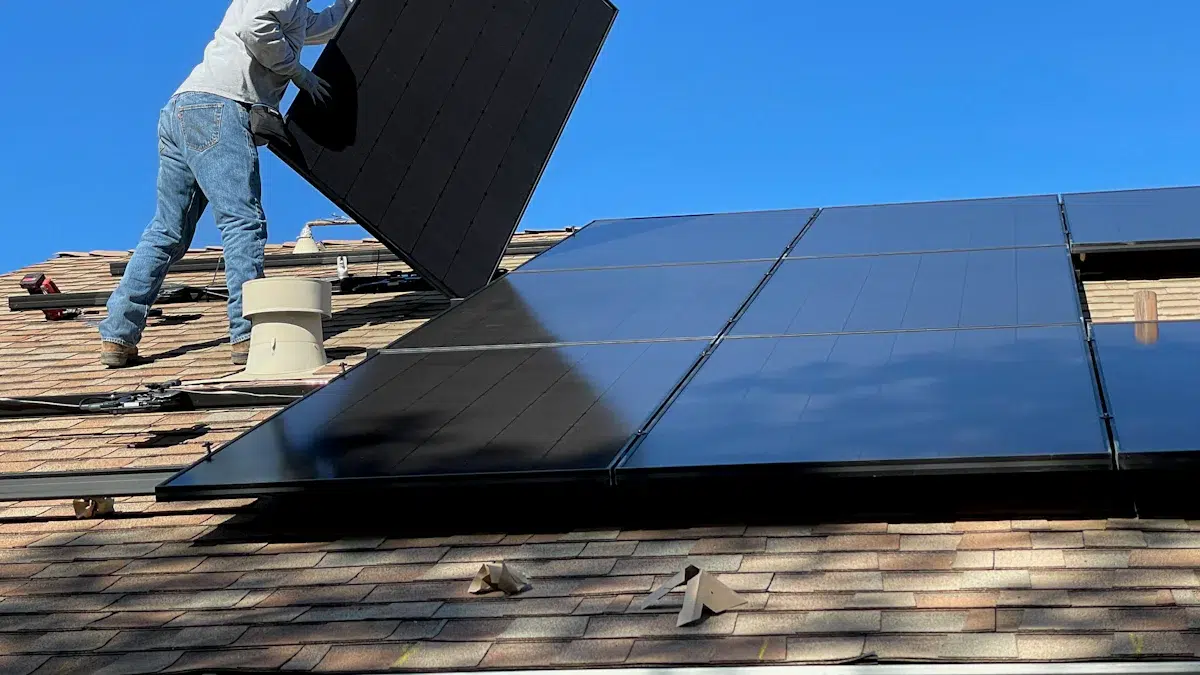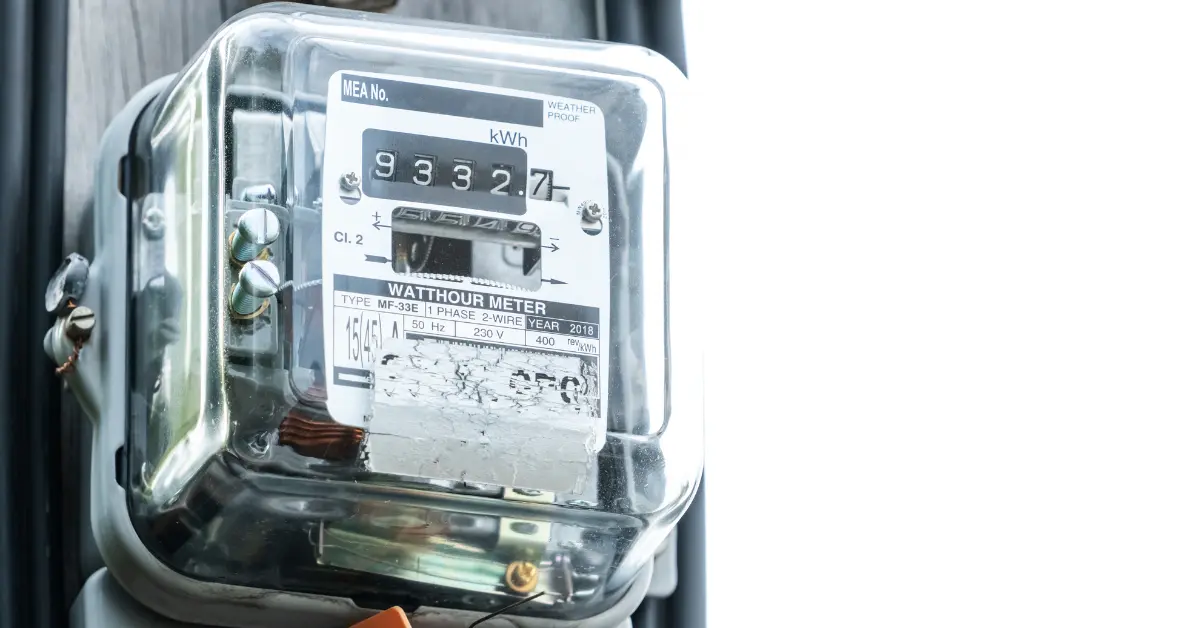Net metering is a crucial concept for solar panel users in Oklahoma. It allows electric meters to track energy flow bidirectionally, enabling users to offset their electricity usage with solar power. Despite its benefits, challenges like buyback rates and utility restrictions exist. In Oklahoma, residents can access tax credits and incentives to make solar installations more affordable. Understanding Oklahoma net metering is essential for those looking to embrace renewable energy solutions.
Understanding Net Metering and Its Role in Solar Power
What is Net Metering?
Definition and basic concept
Net metering, a fundamental practice in the renewable energy sector, enables customers to sell excess energy back to the grid. This process involves tracking the energy flow bidirectionally, allowing solar panel users to offset their electricity bills effectively.
Importance for renewable energy adoption
The significance of net metering lies in its ability to promote the adoption of renewable energy sources like solar power. By providing incentives for generating clean electricity and reducing reliance on traditional fossil fuels, net metering plays a crucial role in building a sustainable energy future.
How Net Metering Energy Works
Bi-directional meter
A bi-directional meter is a key component of net metering systems. It measures both the electricity consumed from the grid and the surplus energy fed back into it. This mechanism ensures accurate tracking of energy flow for billing purposes.
Measurement of energy flow
Net metering programs involve monitoring the total amount of electricity produced by a solar panel system and comparing it with the actual consumption. This measurement allows users to receive credits for the excess energy they contribute to the grid.
Energy credits and billing process
Through net metering, solar panel users earn credits for the surplus electricity they generate. These credits are then used to offset future electricity bills, providing financial benefits and encouraging sustainable energy practices. The billing process involves reconciling these credits with actual consumption, resulting in cost savings for participants.
State Net Metering Regulations in Oklahoma
Oklahoma Net Metering State Statutes and Commission Rules
Overview of relevant statutes
Oklahoma net metering policies are governed by specific state statutes and commission rules. These regulations outline the framework for how customers can participate in net metering programs. They provide guidance on how excess energy production is compensated and establish the parameters for interconnection with the grid.
Role of the Oklahoma Corporation Commission
The Oklahoma Corporation Commission plays a vital role in overseeing and enforcing net metering regulations in the state. It ensures that utility companies comply with the established rules and treat participating customers fairly. The Commission’s involvement helps maintain transparency and accountability within the net metering system, benefiting both consumers and utility providers.
Utility Company Policies
Variations among different utilities
Utility companies in Oklahoma may have varying policies regarding net metering participation. These differences can impact aspects such as buy-back rates, billing processes, and eligibility criteria for customers. Understanding these variations is essential for individuals considering solar installations to maximize their benefits under different utility programs.
Requirements for interconnection
Interconnection requirements are crucial for ensuring seamless integration of solar panel systems with the existing electrical grid. By meeting these requirements, solar users can safely connect their systems to the grid without compromising reliability or safety standards. Understanding and adhering to interconnection guidelines is key to a successful and efficient net metering experience.
Financial Benefits and Incentives for Oklahoma Net Metering Solar

Tax Credits and Rebates for Solar Power of Oklahoma
Federal tax credits
- Federal incentives play a significant role in supporting solar panel users in Oklahoma. The federal solar tax credit (ITC) offers a credit of 30% of the total installation expense, which averages around $11,022 in the state. This substantial incentive helps reduce the initial cost burden for residents looking to adopt solar energy.
State-specific incentives
- State-specific incentives complement federal programs by providing additional benefits to solar panel users in Oklahoma. These incentives primarily include net metering programs offered by local utility companies. Participating in these programs allows residents to maximize their savings and contribute to sustainable energy practices within the state.
Offsetting Electricity Usage with Solar Power
How energy credits reduce bills
- Energy credits obtained through net metering enable homeowners to effectively reduce their electricity bills. By generating surplus energy with solar panels, users can earn credits that offset future consumption costs. This process not only promotes energy efficiency but also leads to tangible financial savings for participants.
Long-term financial savings
- Engaging in net metering for solar power offers long-term financial benefits for residents in Oklahoma. After factoring in the 30% federal solar tax credit, the average cost of installing solar panels in the state is approximately $19,719. Over time, this investment translates into substantial savings on electricity expenses, making it a financially viable and environmentally friendly choice for homeowners.
Limitations and Challenges of Net Metering Solar Panels
Buyback Rates
Explanation of retail vs. wholesale rates
- Retail rates refer to the price at which electricity is sold to consumers, typically higher than wholesale rates.
- Wholesale rates are the prices at which energy is purchased from generators and sold to retailers or large consumers.
Impact on solar panel users
- Solar panel users in Oklahoma face challenges due to buyback rates that often align with wholesale rather than retail prices.
- This discrepancy can affect the financial benefits of net metering programs for residents investing in solar energy solutions.
Utility Company Policies
Restrictions on net metering
- Some utility companies in Oklahoma impose restrictions on net metering, limiting the benefits available to solar panel users.
- These restrictions may include caps on system size, eligibility criteria, or additional charges for participating in net metering programs.
Discouragement for DG customers
- Distributed generation (DG) customers, including residential solar panel users, are sometimes discouraged by utility policies that offer less favorable terms for excess energy production.
- This discouragement can hinder the adoption of renewable energy technologies among homeowners seeking to reduce their carbon footprint and electricity bills.
- To summarize, net metering in Oklahoma offers solar panel users the opportunity to offset their electricity bills by selling excess energy back to the grid. This practice not only promotes sustainable energy solutions but also provides financial benefits for participants. Embracing solar energy and net metering can lead to long-term savings and a reduced carbon footprint. Consider exploring these options further to maximize your energy efficiency and contribute to a greener future.






